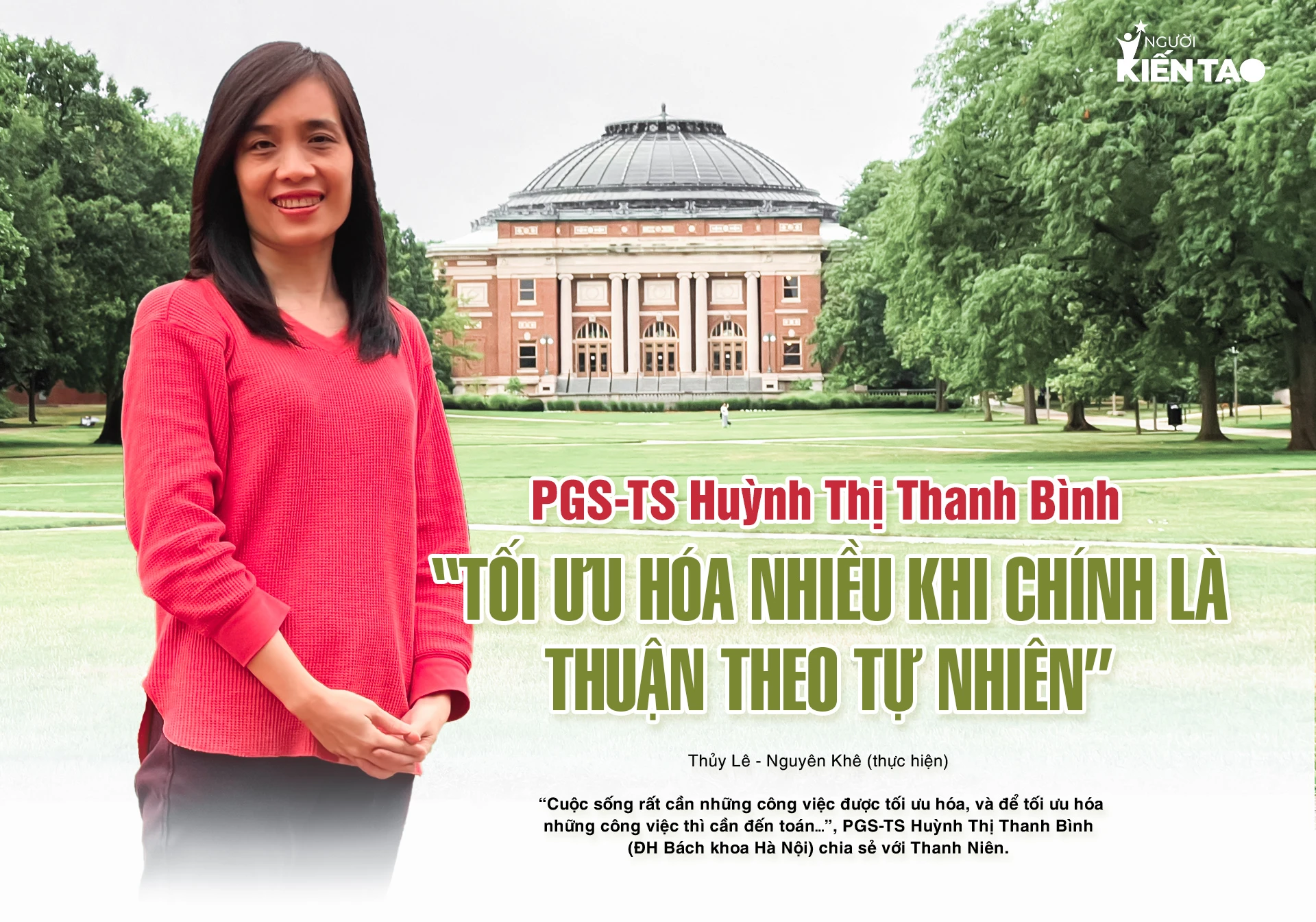
What special fate has kept you attached to Hanoi University of Science and Technology since your student days? Are you someone who is afraid of changing environments?
I am a member of the 37th generation of students majoring in information technology (IT) at the school, but in fact I have been studying IT since high school. Then I studied university, master's, doctorate... all at this school.
Actually, there were times when I intended to study abroad in Japan. When I was in college, I studied Japanese for 5 years, sponsored by the Japanese government for 20 excellent students of K36 and K37. Then, it fell right into the economic recession of the neighboring country, so this was suspended. Then, when I finished my master's degree, Professor Ho Tu Bao introduced me to a very prestigious professor in Japan to do research there, but due to subjective reasons on my part (getting married), I still stayed at the University of Technology. It is also because of these objective and subjective reasons that I still do my PhD at the school and teach there until now.
If I say it's fate, I'm afraid it's a bit of an exaggeration, but to put it simply, this thing came to me naturally and easily.
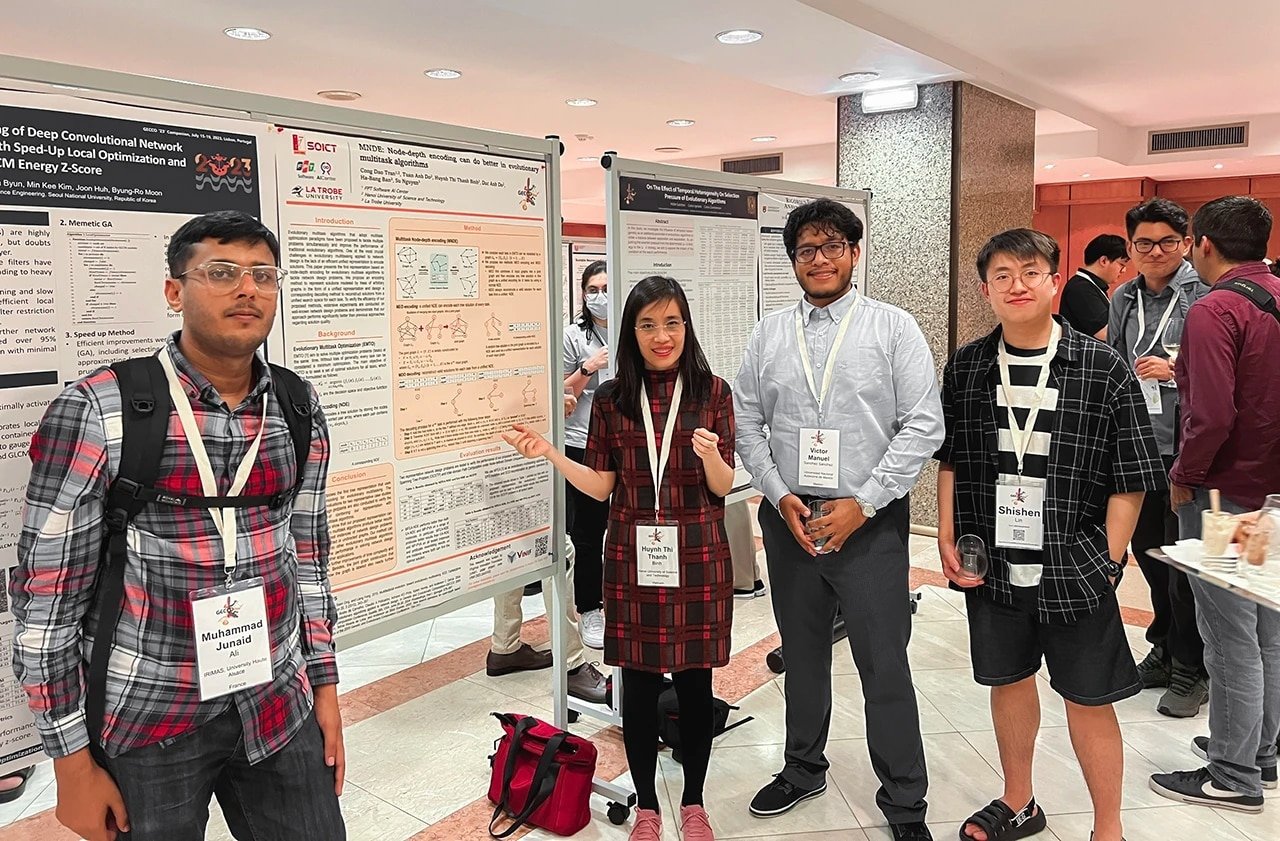
Associate Professor, Dr. Huynh Thi Thanh Binh attended and presented a report at the leading conference on evolutionary computation, July 2023 in Lisbon, Portugal.
In some recent conferences, I saw you often present research results with many other female scientists. Is that a sign of a new generation of "feminism" in science at the Polytechnic?
The last time I attended the Vingroup Innovation Fund (VINIF) conference, Dr. Nguyen Phi Le, Dr. Le Minh Thuy and I presented together, and there was another female student, Dr. Nguyen Cam Ly, who was in Japan and had not returned yet. That was a coincidence, or a "sympathy" between us, and did not represent any "feminist" generation. In the engineering block at school, there are few groups with as many female members as my group, probably only less than the research groups in the economics or foreign languages blocks at school. Another special point is that every year, my group publishes at leading conferences around the world, and then my group and I attend the conference to expand the opportunity to exchange with strong research groups.
I understand that you are managing a large laboratory in the school and also teaching. Is there any optimization process that needs to be applied to do this well?
I am currently the leader of an optimization research group of about 40 people. I find the workload to be large; I usually work from early morning until 6-7 pm, including Saturdays. For me, work is like daily food and drink, and there is always a change of dishes because every week there is a new discovery from this group or another. That makes me feel excited.
To optimize my work, I often have to set goals, plan, allocate time reasonably and never forget deadlines.

Dreamy moments with colors and brushes
An impressive work ethic, behind a slim figure?
I think a light body helps me have more energy to think, research, and create. Of course, you have to be comfortable with your state.
I also learn piano, because I also want to do something harmonious for life, to have something more flavorful in life. Music is actually also mathematics, similar to language or the development of things in nature.
To unite members in the lab, which management style do you choose: Firm or flexible?

A gift from a student in the Lab to her on March 8th
Connecting members in the Lab is extremely important. Without communication, updates, and sharing between research directions, it will be difficult to do so. Every morning at the beginning of the week, I bring a cart of food and drinks for the Lab members, calculating how much they can comfortably use throughout the week. I try to support the group members so that they can focus on their research without being distracted and can work from morning to night.
I also have to always be present at the Lab like you, working together, meeting together, discussing with you and other research groups. If I can’t do that, there will be no coordination between research directions, or they may overlap, not support each other, not update each other’s progress…
My management style varies depending on the role. At school, I am very gentle with my colleagues; in the research group, I consider myself quite strict, very punctual and punctual, with clear rewards and punishments. The reason probably comes from the desire to optimize in each different type of work, and I find this very natural.
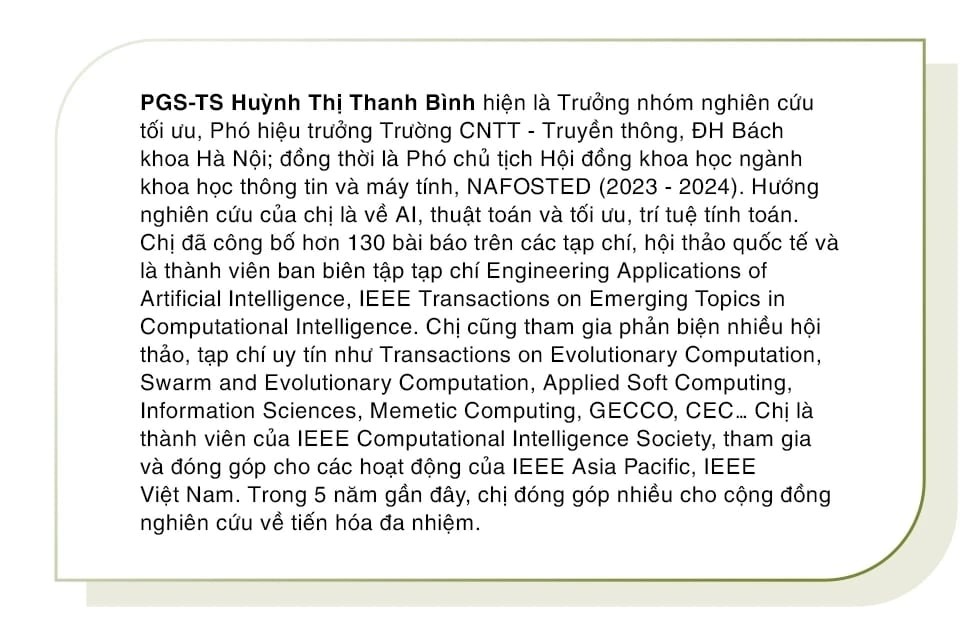

What is a concrete example of how mathematics can lead to optimal solutions?
In essence, mathematics is beautiful. Many problems in life require mathematics. For example, "how to get from Hanoi University of Science and Technology to Hoan Kiem Lake as quickly as possible and with the least number of red lights" is a problem that requires an algorithm to find the optimal answer. Many problems around us, such as routing problems for delivery and logistics, are also combinatorial optimization problems... Life needs optimized work, and to optimize work, mathematics is needed. Applied mathematics is now a very developed field and plays an important role in life.
We do not always find the optimal solution, for example, for problems in production and logistics with parameters that change continuously over time. These problems require many complementary methods, need to find acceptable solutions and use approximate methods. The object of mathematics is absolute numbers, but doing mathematics with approximate quantities is actually approaching the essence of nature and is close to the optimal.
From mathematics, optimization to artificial intelligence (AI) is it a long or short path?
AI began in the 1940s and 1950s. At that time, Alan Turing introduced the concept of "Turing machine" to simulate the theory of intelligent computers. In the 1950s, John McCarthy introduced the term "artificial intelligence" and developed language. In the 1970s and 1980s, concepts such as expert systems and fuzzy logic were developed to solve decision-making problems. The 1990s saw the development of neural networks and deep neural networks. In the 2010s, AI technology has been integrated into many fields, including self-driving cars, chatbots, recognition, and language processing. Recently, AI has become so popular that it has entered every aspect of life and is a topic of interest for countries. In the future, AI will be an extremely fertile market for deeper and further development, penetrating more activities of life.
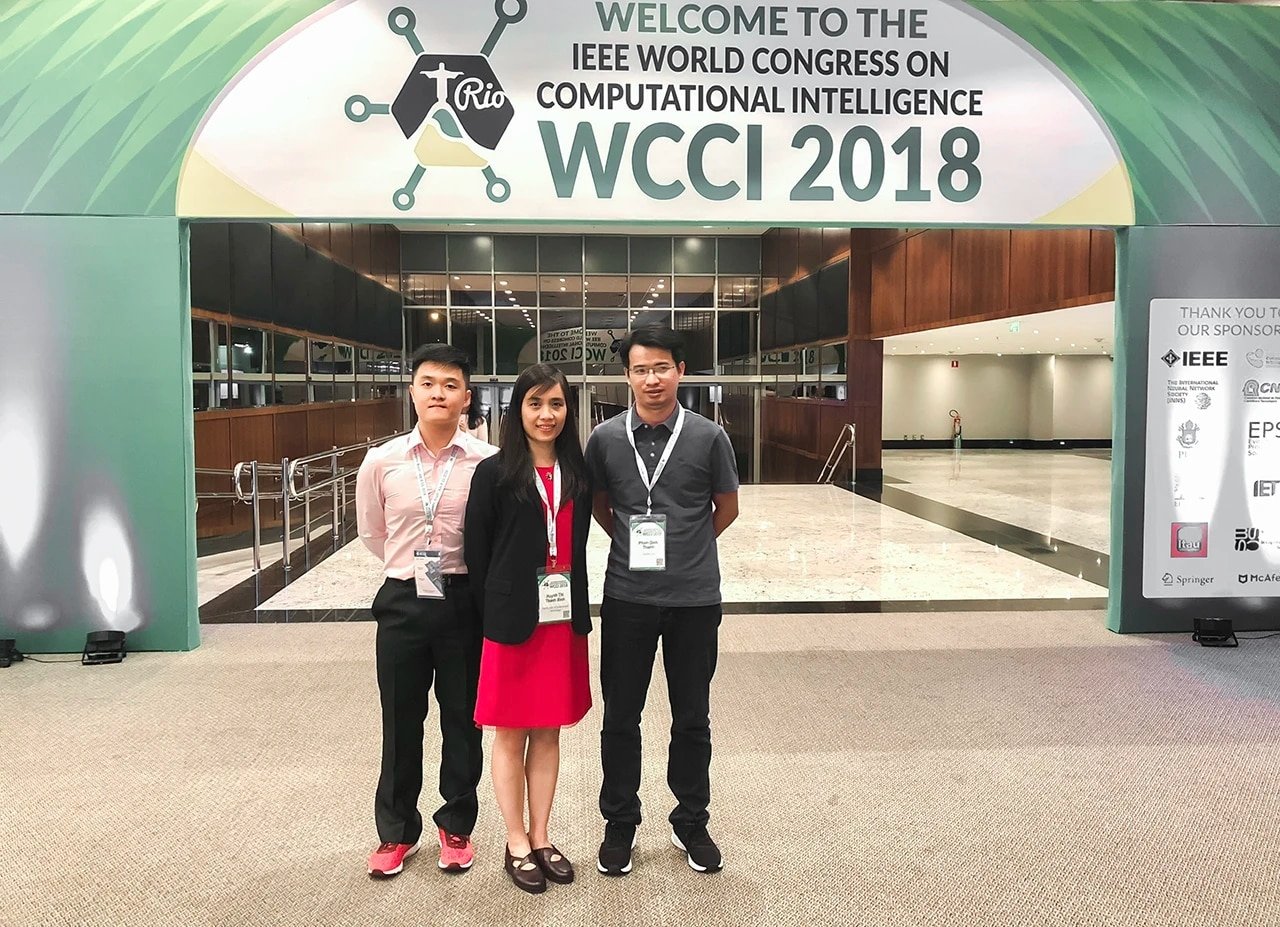
With graduate students and students attending and reporting at the 2018 IEEE World Congress on Computational Intelligence in Rio de Janeiro, Brazil in June 2018
Many people believe that current AI research and applications will never lead to the creation of true “intelligence”. What do you think about this view, and what do you think makes the difference between human and machine intelligence?
In Alan Turing's time, people believed that if a machine could be created that could process calculations well with an extremely large data system, then at some point, its complexity would be equal to the neural network in the human brain - that is, AI could reach human intelligence. After about 80 years of development in that direction with super companies like Google, up to now, I think AI is still far from being able to achieve that goal. Mechanically, it can be said that humans synthesize information, perceive, learn, express emotions... in ways that can be calculated and programmed; according to that logic, AI can approach and surpass humans thanks to improvements in speed and data. However, there is a certain "illogical" mechanism in the human brain that I think AI is far from, or can never reach that state.
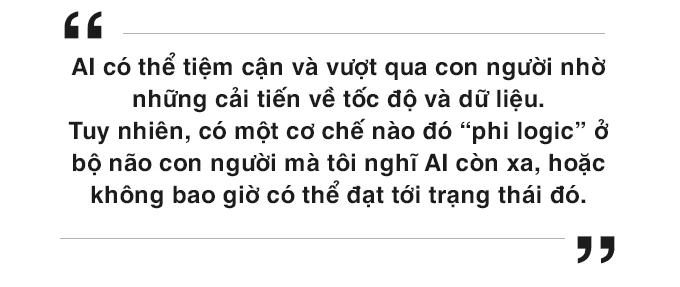
Will there come a time when humans use data as a weapon, instead of guns or economics? What will be the consequences of this data war? Is there a need for an optimization/balancing strategy between the human world and the machine world?
I can lose my wallet, but I can’t lose my computer and the data in it. That’s to say, data is extremely important. In a war with weapons/economy, we can evacuate/negotiate…; but with data, we can’t do anything. People even use big data to serve competition/war. AI without data is meaningless.
The consequences of the data war will be dire. Ethical standards for data mining and use have been established.
It may be a bit early to talk about a human-machine balance strategy, but a strategy to protect data as a national asset is extremely necessary. Now people are also starting to be cautious when providing personal data to another party. With giants like Google, Facebook or TikTok..., if we do not control and secure data effectively, we will leave a valuable resource floating for these companies to manipulate and use. The government has quite good data management policies for places that store a lot of personal data such as schools, banks...; but managing the data that people "unconsciously" provide to these giants is not simple.
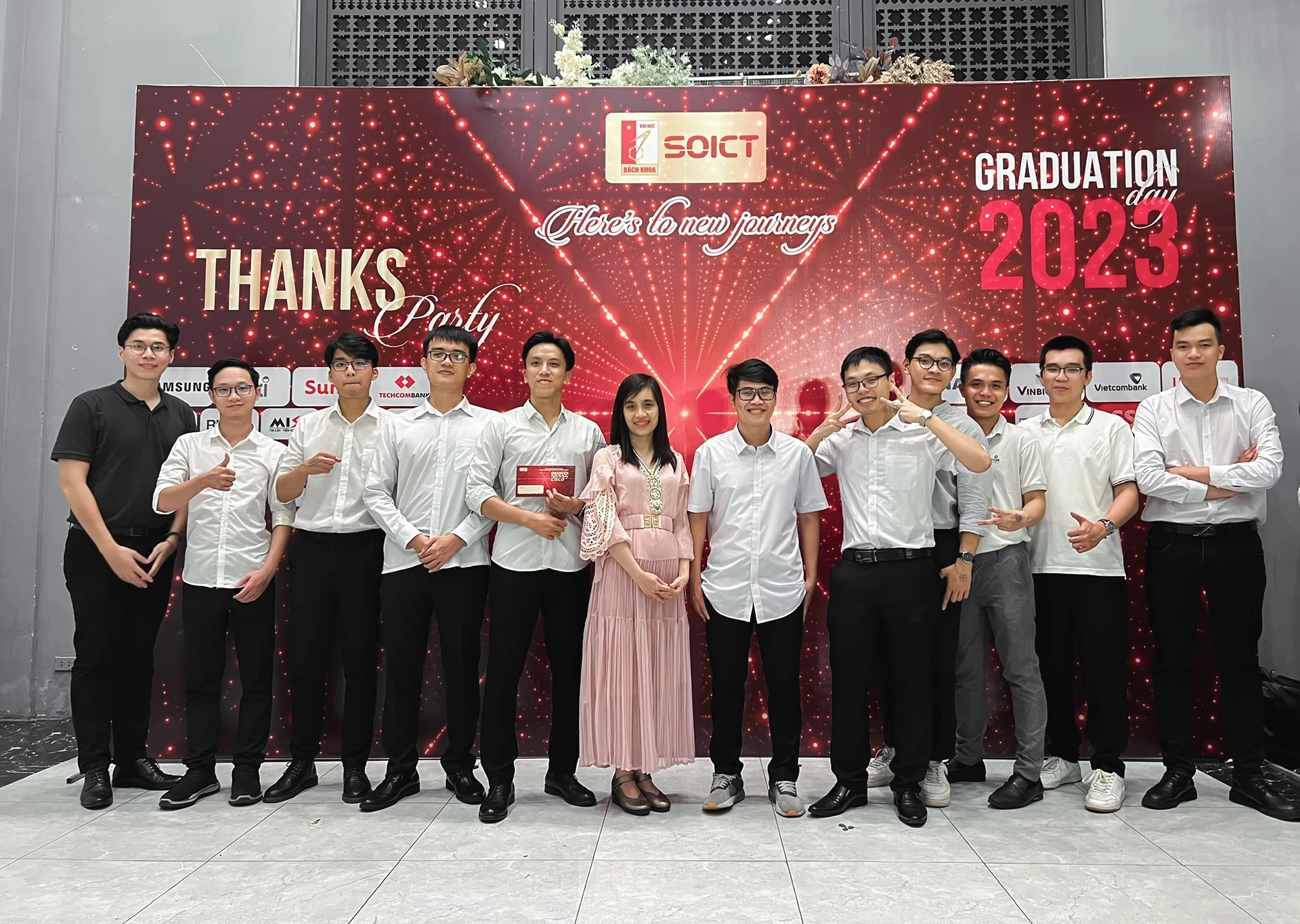
Associate Professor, Dr. Huynh Thi Thanh Binh and Polytechnic students graduating in August 2023
In addition to data, optimizing information transfer is also important, and is it relevant to a research project you are working on?
Yes, that is the project that my team and I are very proud of, when we were funded by VINIF Foundation for research on transfer learning to solve combinatorial optimization problems. To be able to get funding for the project, my team spent 9 months preparing, writing and revising the proposal to make it the best and closest to the results that can be achieved in practice. The project involves research on optimal knowledge transfer in evolution, information transfer in co-evolution and information transfer in neural networks.
Transfer here is not from machine to machine or from person to person but is the study of information transfer/information sharing to solve optimization problems in life effectively. For example, some important problems: robot arm problem, routing problem in transportation, planning in military ...
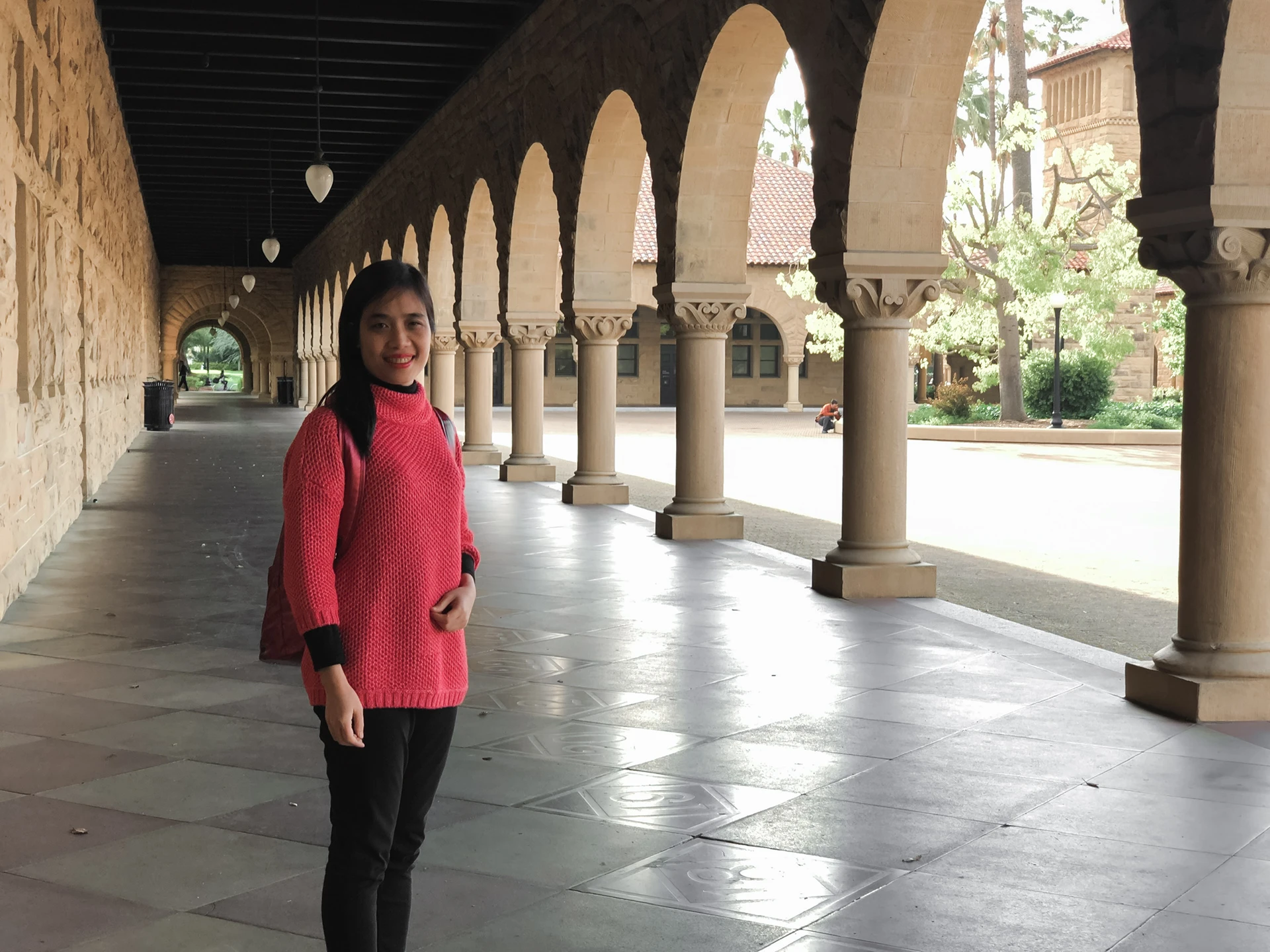
Associate Professor, Dr. Huynh Thi Thanh Binh at Stanford University, USA
Recent statistics show that AI industry employees receive salaries in the top 3 in Vietnam. In your opinion, is AI a trendy field of study?
In a recent conference report, I also summarized the salary of AI engineers in Vietnam, and found that it is indeed very good. There are many opportunities for jobs related to AI and I think in the near future, AI will still be a very attractive field, easy to find jobs and high income.
From the perspective of someone who has been associated with the University of Science and Technology for many generations, how do you compare the current generation of Gen Z with previous alumni?
I don’t know where, but with Gen Z students at Polytechnic, I see that you are getting better and better. Very good. You are very smart, not only good at your major but also at foreign languages and soft skills. Especially, since switching to an autonomous mechanism, Polytechnic has attracted more and more talented students.
At the School of Information Technology and Communications where I work, students previously had little access to research labs. However, in recent years, most students have been in the labs since their first years, working enthusiastically and creatively. Some students have even taken the initiative to learn about our labs and participate.
Thanks for the chat!




![[Photo] Prime Minister Pham Minh Chinh meets with King Philippe of Belgium](https://vstatic.vietnam.vn/vietnam/resource/IMAGE/2025/4/1/be2f9ad3b17843b9b8f8dee6f2d227e7)
![[Photo] President Luong Cuong and King Philippe of Belgium visit Thang Long Imperial Citadel](https://vstatic.vietnam.vn/vietnam/resource/IMAGE/2025/4/1/cb080a6652f84a1291edc3d2ee50f631)


![[Photo] Close-up of Vietnam's sniffer dog team searching for earthquake victims in Myanmar](https://vstatic.vietnam.vn/vietnam/resource/IMAGE/2025/4/1/d4949a0510ba40af93a15359b5450df2)
![[Photo] General Secretary To Lam receives King Philippe of Belgium](https://vstatic.vietnam.vn/vietnam/resource/IMAGE/2025/4/1/e5963137a0c9428dabb93bdb34b86d7c)


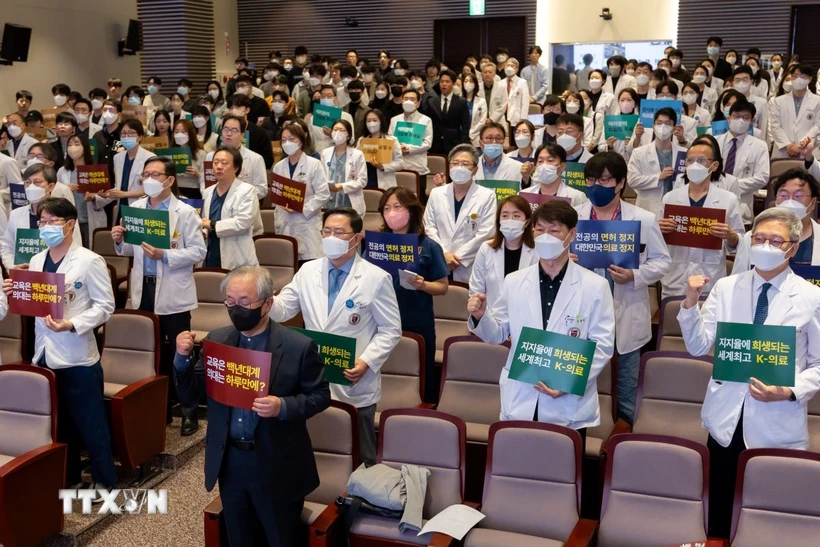

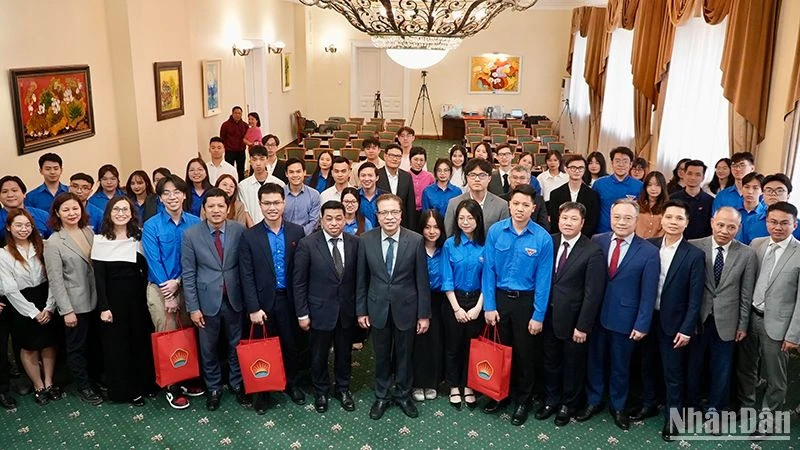

















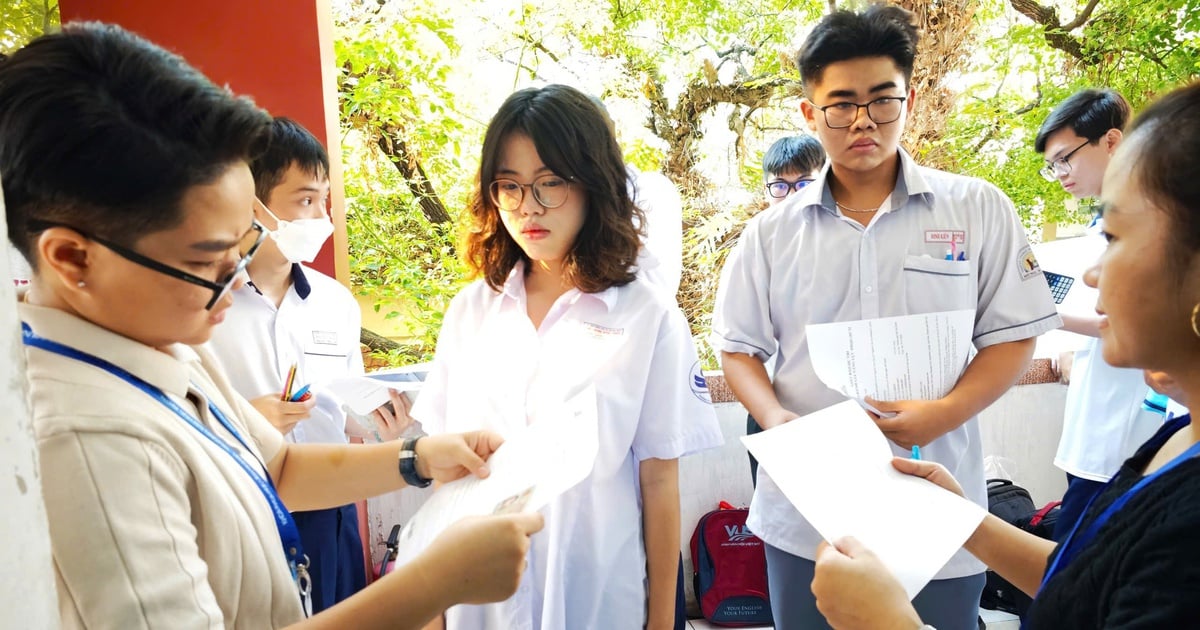
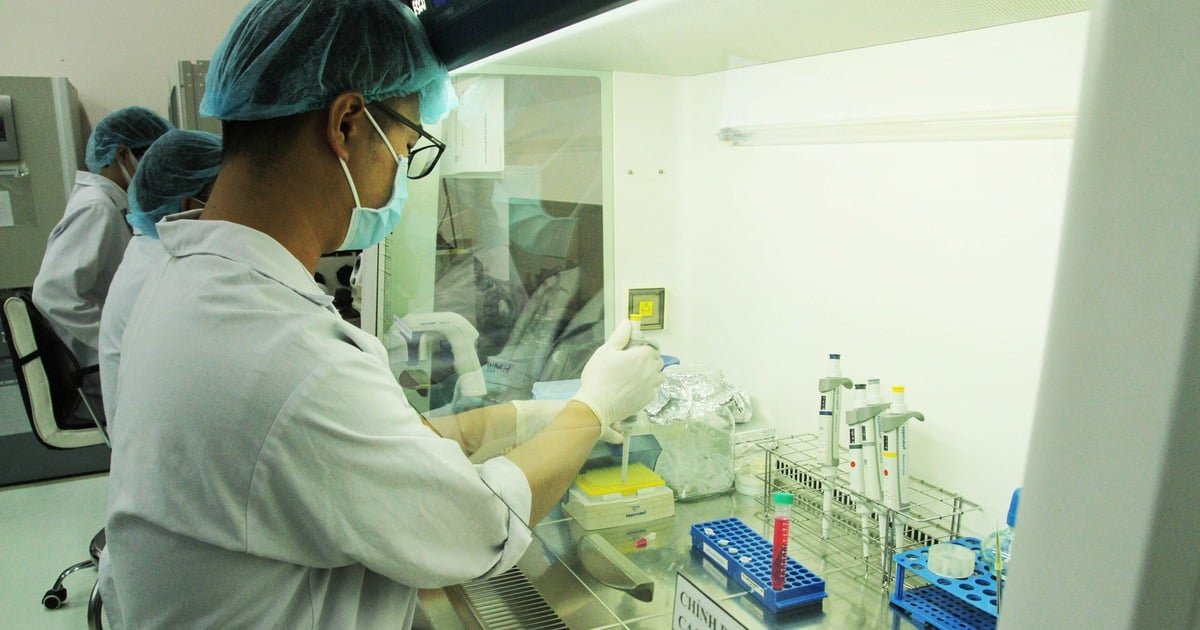






















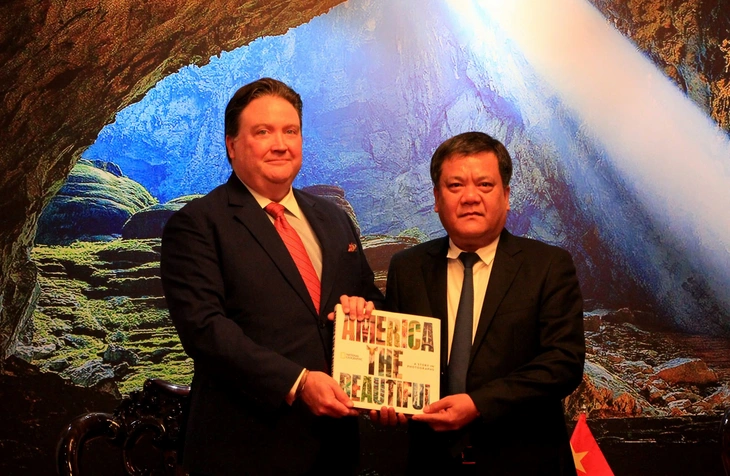
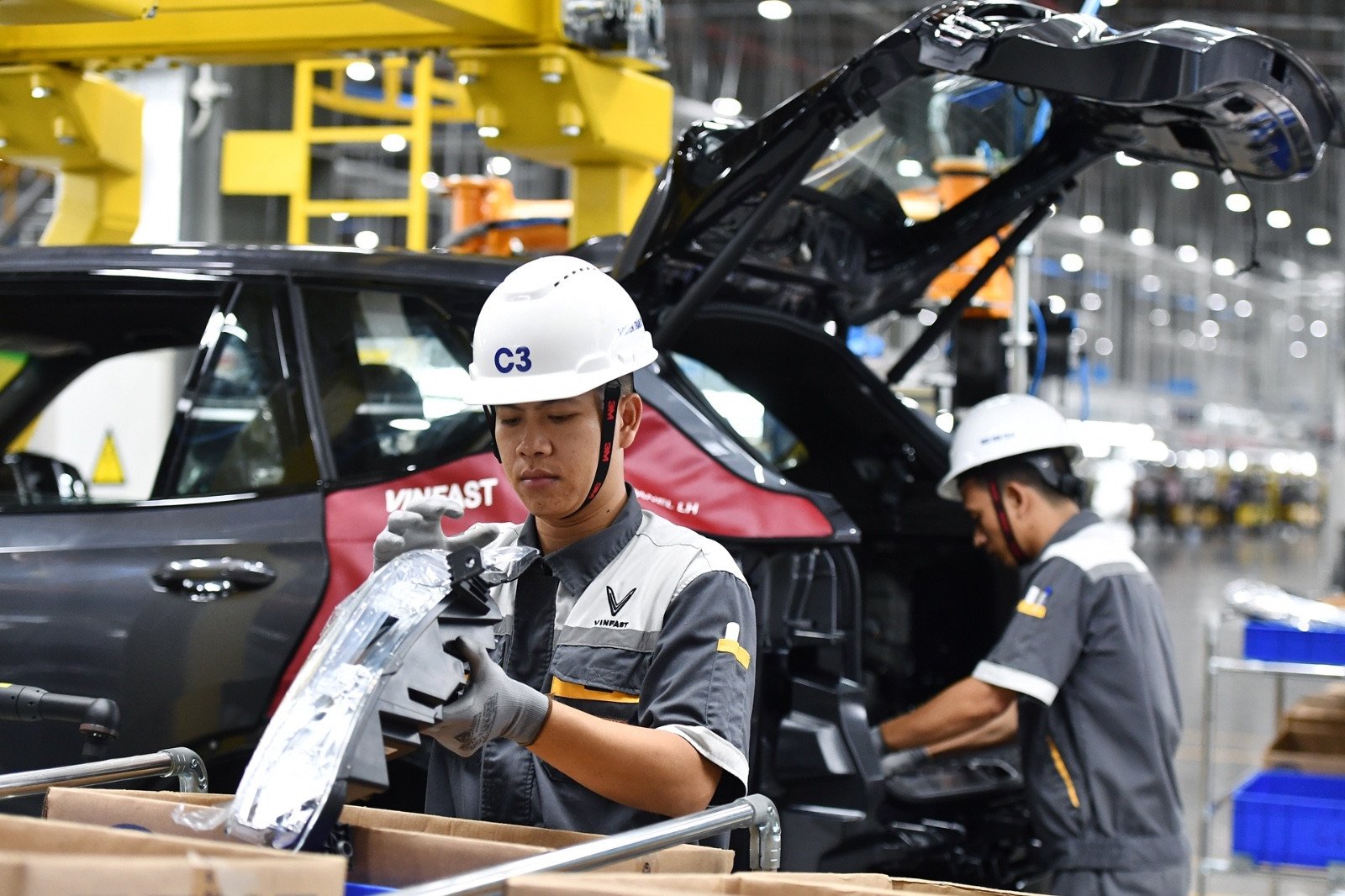































Comment (0)